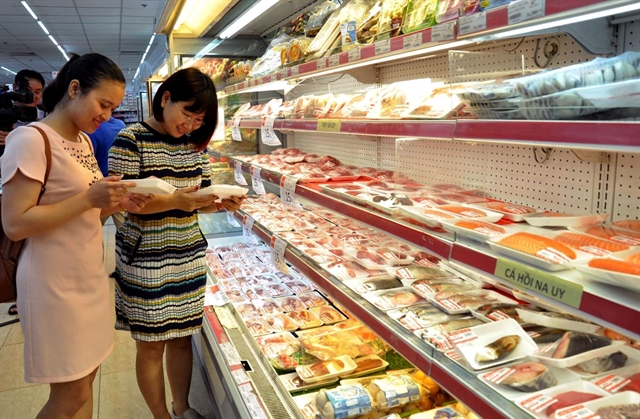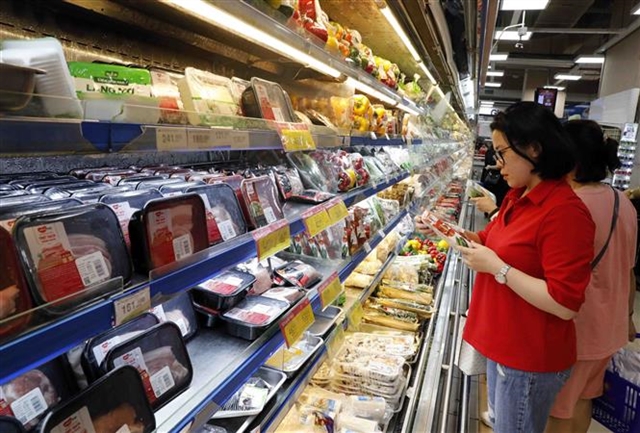 Economy
Economy

 |
| Shoppers at a supermarket in Hà Nội. — VNA/VNS Photo |
HÀ NỘI — Domestic consumption is likely to lose steam as consumers face uncertainties, along with changes to shopping trends. Meanwhile, businesses have reported it's increasingly difficult to maintain purchasing power and reduce inventory buildup, said industry insiders and economists.
Đặng Thúy Hà, director of Customer Behavior Research at NielsenIQ Vietnam, a market research firm based in HCM City, said report showed that younger adults (aged 18-25) have attempted to improve their financial situation by finding ways to boost income and save more, while older adults (aged 46-55) have cut spending on non-essential items.
The report showed during the first quarter of this year, 62 per cent of Vietnamese consumers opted to cook at home more and tighten spending on non-essential items. About 50 per cent reduced purchases of luxury goods, over 30 per cent postponed major expenses and around 40 per cent are spending more cautiously.
To make matters worse, Vietnamese consumers are increasingly shopping online to take advantage of discounts and price comparisons between products while purchasing lower-priced items.
Hà said it is a difficult time to retain customers. Consumers feel the need to be cautious in spending habits due to ongoing economic difficulties and this is likely to last at least another six months to a year. Businesses need to monitor the latest trends to understand what consumers want and need, focusing on essential needs and offering value for money products.
Nguyễn Phương Nga from Kantar Vietnam, a market research company based in HCM City, said consumers now shop less frequently but on a greater number of channels with average spending per purchase on the rise, making attracting and retaining customers necessary.
Lê Trực Mỹ, director of a food company in southern Vĩnh Long Province, said his company has been observing a downward trend in consumers' spending as they only make purchases of the most essential items.
Mỹ said businesses must find ways to boost demand and stabilise production. He called for greater support from the Government and the country's financial system.
According to statistics released by the General Statistics Office (GSO), total retail sales of goods and services during the first five months of 2024 reached VNĐ2.58 trillion, an 8.7 per cent increase compared to the same period in 2023.
In an earlier development, a report from the Ministry of Industry and Trade said despite modest growth in the first five months of the year, achieving and maintaining this growth for an entire year, similar to 2023 and the pre-pandemic years, is likely to be extremely challenging without stronger economic stimulus.
The ministry said to boost purchasing power, the Government must keep a close eye on inflation while improving analysis and forecasting capacities to intervene effectively when needed.
Meanwhile, businesses need to focus more on marketing and sales strategies, taking a page from how online sales channels have combined shopping and entertainment, with livestream sales being highly popular.
A Kantar survey reported that online channels contribute 8 per cent to the total fast-moving consumer goods market value and were expected to increase by another two percentage points in the next two years. This presents opportunities for brands, especially smaller ones, to quickly reach more shoppers. TikTok Shop, for instance, has rapidly gained a large number of shoppers in a short time due to its unique shopping-entertainment platform.
Lê Hùng Cường, deputy director-general of FPT Digital, said businesses must take note of how consumer behaviours and demands are constantly changing and so must adapt their marketing and strategies. — VNS




